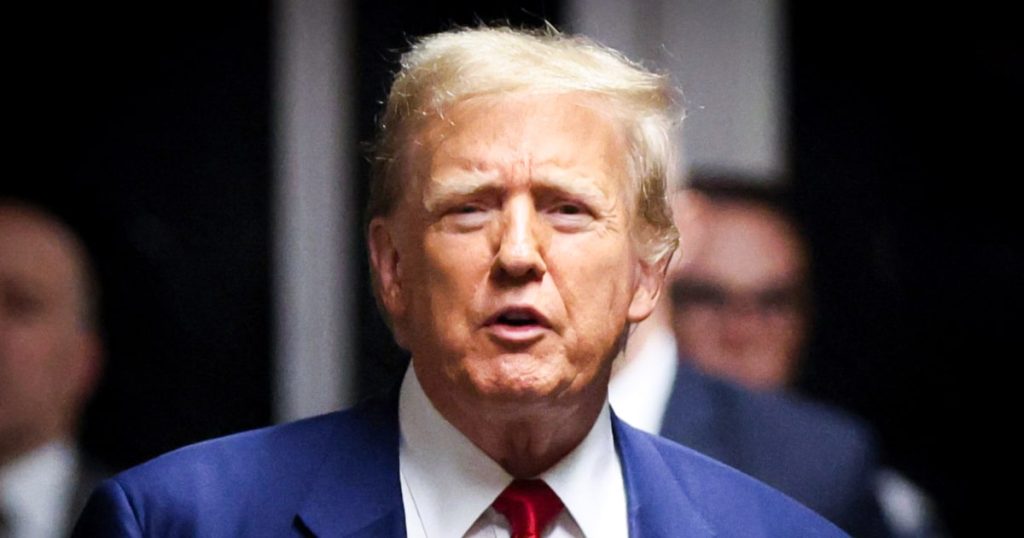The judge presiding over the New York criminal case against Donald Trump has imposed a partial gag order on the former president. This order prohibits Trump from making public statements about known or potential witnesses, individual prosecutors, court staff, jurors, and potential jurors. The judge cited Trump’s past extrajudicial statements as posing a risk to the administration of justice and noted that there was no less restrictive means to prevent such risk. Trump’s campaign spokesman called the order unconstitutional, while the judge emphasized that Trump’s public commentary on the case had gone beyond defending himself against attacks.
The judge’s ruling was prompted by Trump’s recent social media posts blasting the judge, the judge’s daughter, Manhattan District Attorney Alvin Bragg, and key witness Michael Cohen. Trump referred to Cohen as a “liar and felon” and referred to a former prosecutor in the case as a “dirtbag lawyer.” Cohen, who has been under constant attack from Trump’s supporters, expressed gratitude for the gag order but anticipated that Trump would find ways to bypass it using others in his circle. Cohen had previously pleaded guilty to criminal charges related to hush money deals paid to women who claimed to have had affairs with Trump.
The district attorney’s case against Trump centers on payments made to reimburse Cohen for hush money paid to adult film star Stormy Daniels to prevent her from disclosing an alleged sexual encounter with Trump in 2006. Trump has denied the encounter but has admitted to repaying Cohen. He faces charges of repeatedly falsifying New York business records and is set to go on trial in April. The judge emphasized the imminency of the risk of harm posed by Trump’s public statements as the trial approaches, leading to the imposition of the gag order.
This is the third partial gag order imposed on Trump in the past year. In a civil fraud trial in January, Trump and his attorneys were ordered not to talk about a law clerk or other court staffers after Trump’s comments led to threats against the clerk. In a federal election interference case in Washington, D.C., a judge prohibited Trump from trashing witnesses, prosecutors, and court staff. However, a higher court later allowed Trump some leeway to speak out if disparaging comments were made about him. The Manhattan District Attorney’s Office had requested the partial gag order in Trump’s criminal case, citing his history of inflammatory remarks about participants in judicial proceedings.
The judge’s decision to impose a partial gag order on Donald Trump reflects concerns about the potential impact of his extrajudicial statements on the administration of justice in the criminal case against him. Trump’s past public commentary, including attacks on witnesses, prosecutors, and court staff, was considered to pose a risk of impeding the orderly administration of the court. Despite claims of unconstitutionality from Trump’s camp, the judge emphasized that the restrictions on his public statements were necessary to ensure a fair trial process and prevent potential harm or prejudice to the case. The gag order is set to remain in place as the trial date approaches, with both sides preparing for a high-profile legal battle in the coming months.


